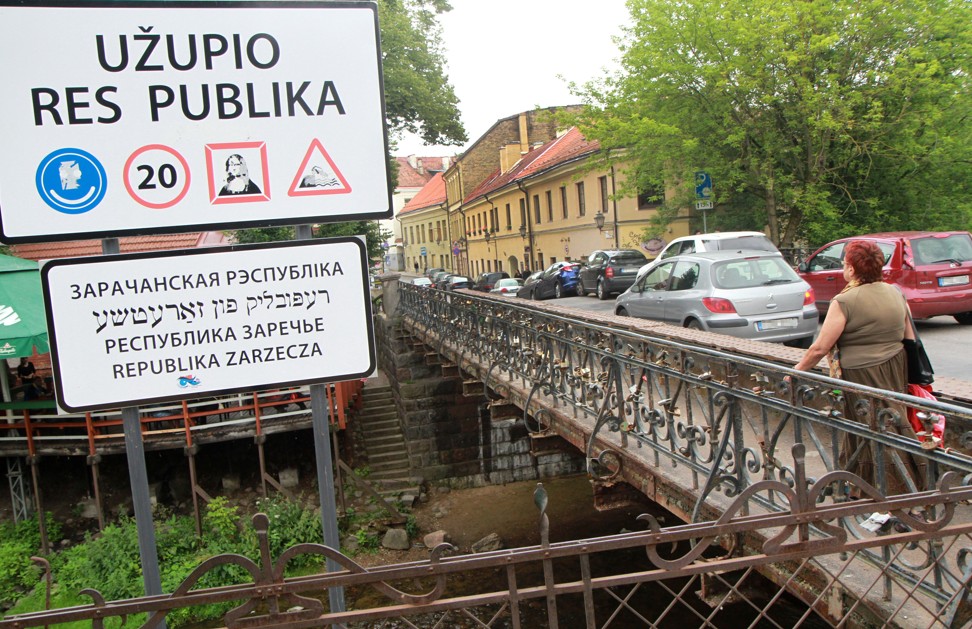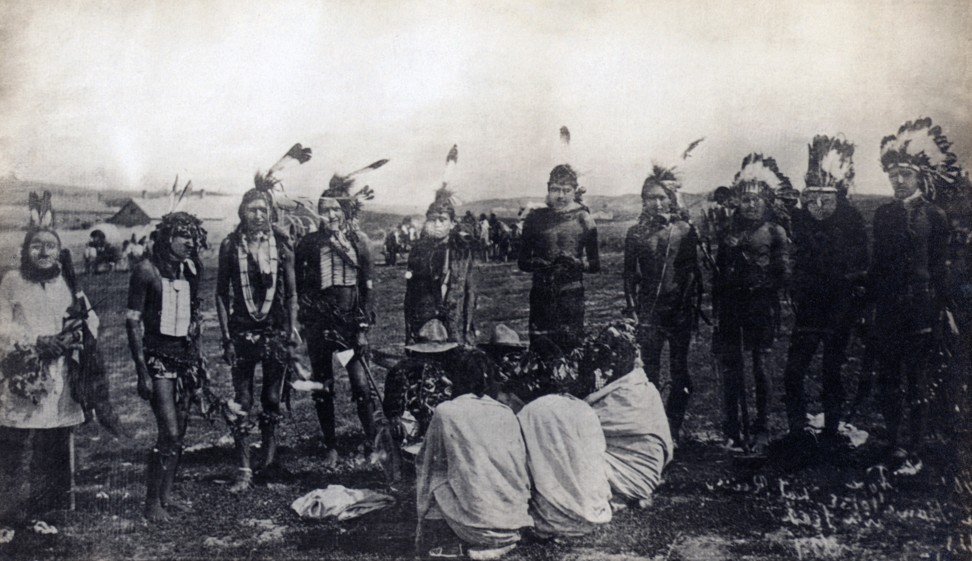
Seven countries, states and breakaway republics you have probably never heard of
- They’ve got flags, football teams and national anthems, all that’s missing is official recognition
- Some are old, some are tiny, one even has a grand duke who’s never stepped foot on his own soil
According to Irish playwright George Bernard Shaw, patriotism is the conviction that your country is superior to all others because you were born in it. But what if your country doesn’t exist, or lies on the fringes of legitimacy? Or it’s so minuscule that even minnows such as Luxembourg and Andorra run rings around it on the football pitch.
Recognition is everything, of course. It’s all very well having (pretend) passports, a flag and anthem but you’re unlikely to be taken seriously if established countries don’t acknowledge your presence. Breakaway republics are populated by fiercely patriotic people who throw off a despised government because of a nostalgic yearning for another (usually Russia). Other self-proclaimed nations exist, Narnia-like, only in the minds of their founders and are little more than a bit of fun. Maybe the best way to define a country would be to use musician Frank Zappa’s definition: it needs an airline, a beer and a football team.
San Marino
Entirely surrounded by Italy (you’re never more than 4km from the Italian border), San Marino claims to be the world’s oldest sovereign state. It’s also the fifth smallest. The mountainous microstate has a population of around 33,000, a standard of living comparable to that of Italy and no crime to speak of. There aren’t any traffic lights, either, even though it’s the only country with more cars than people (taxes are lower than in Italy, making it much cheaper to register vehicles in San Marino).
Tourists drop by to shop and soak up sweeping views across the principality and the surrounding Italian countryside from three medieval towers, while long-suffering locals pay good money to watch their international football team, which has never won a competitive match.

South Ossetia
If it’s success on a football pitch you’re after, the breakaway republic of South Ossetia is for you. The “national” side are European champions, although it should be pointed out they triumphed in the Conifa tournament, which is contested by teams that aren’t recognised by Fifa or the international community.
Located in the Caucasus region, South Ossetia declared independence from Georgia in 1991 and relies heavily on Russia for political, administrative, financial and military support. Besides Russia, the disputed territory is recognised by Nicaragua, Venezuela, Syria and Nauru. It also has diplomatic relations with Abkhazia, Nagorno-Karabakh and Transnistria – the problem is, they’re breakaway republics as well.

Užupis
Founded in 1998, and covering less than a square kilometre, Užupis has a population of 7,000, around 1,000 of whom are artists. The tongue-in-cheek republic is situated in the Lithuanian capital of Vilnius, across the Vilnia River from the city centre (užupis means “the other side of the river”). Inaugurated by “President” Romas Lileikis and a merry band of poets, musicians, filmmakers and artists, the Baltic micronation has its own flag, a blue hand with a hole in the middle, to symbolise the fact its officials can’t accept bribes.
It also boasts a currency, a constitution (translated into more than 20 languages) and an anthem – but no football team. The 11-man army has been disbanded as it didn’t fit with the secessionist suburb’s peaceful philosophy. The state within a state celebrates its independence on – you guessed it – April Fools’ Day.

Province of Bumbunga
Disillusioned with what he saw as Australia’s shift from constitutional monarchy towards republicanism, an eccentric Englishman decided Queen Elizabeth would forever reign over one small, four-hectare corner of the country. Tourists began arriving soon after Alec Brackstone created the Province of Bumbunga on his South Australian farm, in 1976, prompting the self-appointed governor to issue stamps featuring the British royals – with the exception of Sarah, Duchess of York, whom he didn’t like. He even imported earth from Britain so he could offer weddings on British soil. But eventually things started to unravel.
The royalist ran up huge water bills maintaining a strawberry patch in the shape of the British Isles and family mementoes, including war medals, were stolen during a robbery. In 1999, Brackstone was deported to Britain on illegal firearms charges, despite his claim of diplomatic immunity as Bumbunga’s sovereign.

Christiania
The 850 inhabitants have their own news and information website, flag and currency. Christiania has seen better days but there are pockets of charm, particularly the rustic, hand-built houses around the lake, where some residents live and work, teaching yoga and meditation classes.

Westarctica
When American Travis McHenry discovered no formal claims had ever been made to a vast area of Antarctica known as Marie Byrd Land, he decided to act. In 2004, after a couple of name changes, he settled on Westarctica and bestowed the title of grand duke upon himself. The territory, which is slightly larger than Mongolia and slightly smaller than Iran, has 2,000 “residents” (you can apply online) although none, including McHenry, have ever actually visited.
Westarctica is now a non-profit organisation dedicated to preserving the region, protecting native penguins and studying the impact of climate breakdown on Antarctica’s ice sheet. In 2018, the nippy nation was granted tax-exempt status by the United States Internal Revenue Service, allowing Westarctica to receive federal funding grants for scientific expeditions.
First Nations

Indigenous groups displaced by European settlers have long petitioned governments to right historical wrongs. In the US, the Lakota people are lobbying Washington for a free and independent republic of Lakotah, or more accurately, to revive their status as a sovereign nation, as it was before the tribe was forced into unequal treaties. Similarly, the Australian Aboriginal Sovereignty movement demands the right of indigenous communities to govern their own affairs without interference, on the grounds they never surrendered to the government.
Meanwhile, the late Mr Zappa would be pleased to hear an Australian First Nations football team will be competing at the Conifa World Cup for the first time in June. South Ossetia, the Chagos Islands, Western Sahara and Tamil Eelam had better watch out.

